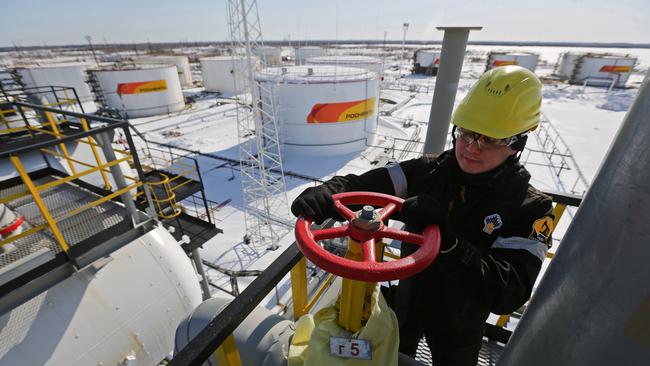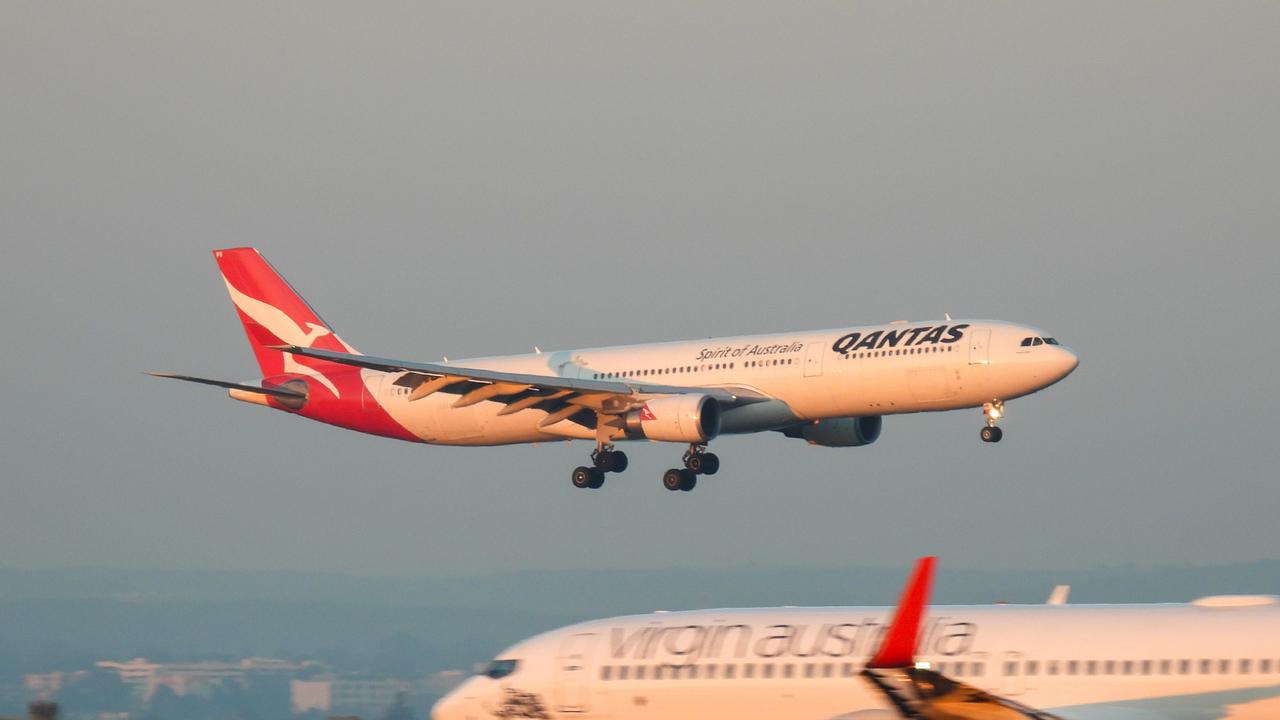BP to exit from stake in Russia’s Rosneft following pressure from UK
The British energy giant may take a $US25bn hit after it sells its almost 20 per cent holding in the Russian government-controlled oil producer.

British energy giant BP said Sunday it will exit its nearly 20 per cent stake in Russian government-controlled oil producer Rosneft, days after it was pressured to unload the holding by UK officials amid Russia’s invasion of Ukraine.
The British company faces a potential loss of as much as $US25bn – encompassing the maximum possible impact of selling the Rosneft stake, valued at $US14bn, plus a big expected charge related to foreign-exchange losses. Currently, BP relies on Rosneft for roughly one-third of its oil-and-gas production.
BP Chief Executive Bernard Looney and former CEO Bob Dudley will resign from Rosneft’s board, the UK company said.
It is unclear how BP will exit the Rosneft stake during a tumultuous time for Russian companies, which face a growing array of sanctions and limits on their ability to access the global financial system. All of that could affect BP’s ability to recover the holding’s full value.
Analysts and bankers have said another government-sponsored buyer could be interested in acquiring the Rosneft stake, citing the Qatari sovereign-wealth fund’s Rosneft holding and potential Chinese interest.
But rapidly changing events in Ukraine make any transaction more complicated than it appeared two weeks ago, making a Russian buyer or consortium of buyers look most likely, bankers said Sunday. BP would do well to unload the stake quickly, even at a bargain price, while oil prices are rising, one banker said.
BP will no longer count on Rosneft dividends, the company said Sunday. A potential writedown of the Rosneft stake would be based on its carrying value at the end of the first quarter.
For BP, the pain will include $US11bn in accumulated foreign-exchange losses on BP’s books. That is because the change in the nature of BP’s longtime Rosneft relationship will affect how those losses are accounted for, the company said.
The abrupt move comes after Mr Looney held a video call Friday with Kwasi Kwarteng, British Secretary of State for Business, Energy and Industrial Strategy. Mr Kwarteng expressed deep concern about BP owning the stake.
BP board members held emergency meetings Friday and over the weekend to discuss the situation, according to a person familiar with the matter.
The UK company is the most-exposed of oil-and-gas majors to Russia, analysts say. BP’s 19.75 per cent stake in Rosneft brought it $US640m in dividends in 2021. Analysts expected 2022 dividends to be worth well over $US1bn.
BP also said it would exit three Russian joint ventures, together valued at $US1.4bn, at year-end. Those include stakes in a Siberian oil-production field and energy-exploration projects.
The BP-Rosneft strategic partnership dates back more than two decades, and BP’s presence in Russia goes back 30 years. Earlier this month, Mr Looney cited that history on a call with analysts as evidence of the company’s staying power in Russia through geopolitical tensions.
“One of the things I’ve learned in my life, you’ve probably all learned in your life, is let’s not worry about things until they happen, and who knows what’s going to happen?” Mr Looney told analysts February 8 when the company reported banner profits from rising energy prices.
Murray Auchincloss, BP’s finance chief, repeated that confidence in an interview that same day, saying, “We’re kind of used to uncertain situations as we work in the oil-and-gas sector,” and adding that BP hadn’t seen material effects from previous sanctions.
The company’s position changed dramatically in a matter of days following Russia’s attack on Ukraine, reflecting the mounting political pressure by countries on companies doing business with Russian President Vladimir Putin’s regime.
The developments also brought attention to ceremonial roles intertwined with Russian business relationships. Mr. Looney had served since 2020 alongside Mr Putin on the board of the Russian Geographical Society. The position – which BP said involved one virtual meeting for Mr. Looney last year – also was a sore point for UK officials. On Sunday, BP said Mr Looney will relinquish that role.
“I welcome BP’s decision to exit its shareholding in Rosneft oil company, ” Mr Kwarteng said on Twitter on Sunday night.
BP’s chairman, Helge Lund, said in a BP statement Sunday that Russia’s invasion was a game changer for the company.
“Russia’s attack on Ukraine is an act of aggression which is having tragic consequences across the region,” he said in the statement, adding, “our involvement with Rosneft, a state-owned enterprise, simply cannot continue.”
The Wall Street Journal


